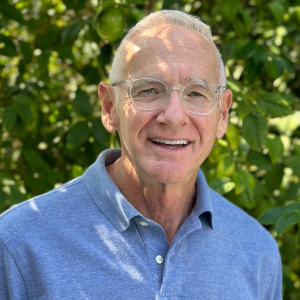
On the 6th of May 2025, clinicians, researchers, and industry leaders came together to explore one of the most important (and often overlooked) parts of diagnostic innovation: how to successfully adopt and implement new infection tests in real-world NHS settings.
This event marked the fourth meeting in the Moving Forward in Infection Diagnostics series, co-hosted by NHS England and the NIHR Leeds Biomedical Research Centre (BRC). The series has already looked at early-stage innovation topics like demand signalling, target product profiles, and evaluation. This latest meeting focused on the final and arguably most challenging stage of the journey: getting the right test to the right patient, in the right place, at the right time.
The day kicked off with a welcome from Dr Kerrie Davies MBE (NHS England) and Dr Jane Freeman (NIHR Leeds BRC), who reminded us just how important collaboration is if we’re going to turn ideas into action in infection diagnostics.
Our Executive Director, Vanessa Carter, an AMR patient survivor shared her story and reminded everyone why this work matters so deeply. She spoke about how delayed diagnostics impacted her recovery fighting MRSA (Methicillin-resistant Staphylococcus aureus) and how in addition screening could play a key role in public health measures for early detection and containment of antibiotic-resistant infections, especially in healthcare settings.
Certain other resistant organisms alongside MRSA are particularly well-suited to screening-based control strategies, including CPE (Carbapenemase-Producing Enterobacterales), VRE (Vancomycin-Resistant Enterococci) and Multidrug-Resistant Acinetobacter baumannii among others.
The morning sessions featured insightful case studies from across the health and research sectors:
The afternoon featured a lively industry-led debate, co-chaired by Angela Douglas MBE (BIVDA) and Nishan Sunthares (ABHI), looking at “What Good Looks Like” in adoption and implementation. Industry voices offered ideas on improving alignment, regulation, and patient access.
A panel discussion featuring all case study presenters including Vanessa, tackled the big question:
“Do we need a national framework for adoption and implementation of infection diagnostic tests?”
The discussion was rich with real-world examples, challenges, and solutions. While opinions varied, there was a strong sense that greater coordination and patient involvement are key.
The final sessions saw attendees split into workshop groups to share their experiences and ideas. The aim is that these conversations will inform a Draft Consensus Statement, helping guide future work and influence policy.
To close the day, Dr Kerrie Davies and Dr Jane Freeman summarised key actions and next steps. Their takeaway message? It’s time to move from discussion to delivery—together.

Dr Marie-Anne Bouldouyre is an infectious diseases physician and hospital practitioner in Paris. Twelve years of clinical work in a suburban hospital shaped her understanding of access to care, patient relationships, and the daily reality of antimicrobial resistance.
Since 2022, she has led the Regional Antibiotic Stewardship Centre in Île-de-France and coordinates the national network, working with a multidisciplinary team to promote responsible antibiotic use and strengthen collaboration among healthcare professionals. She also continues to manage complex infections at Saint-Louis Hospital.
Convinced that antimicrobial resistance cannot be tackled by healthcare workers alone, she advocates for the active involvement of patients : understanding, questioning, and taking part in decisions about antibiotics. Their stories are essential to making this issue visible and concrete.
She is proud to collaborate with initiatives such as The AMR Narrative and hopes to foster similar projects in France to give patients a voice in this shared fight.

Dr Erva Cinar is a London based paediatric resident doctor and clinical researcher with interest in infectious diseases.
She is currently completing a Master’s in Public Health at the London School of Hygiene & Tropical Medicine. Through the World Medical Association’s Junior Doctor’s Network (WMA-JDN) AMR Working Group, she engages in policy and advocacy on antimicrobial resistance and stewardship at global level.
Alongside her clinical and academic roles, she works with the Royal College of Paediatrics and Child Health (RCPCH) and the International Child Health Group (ICHG); leads on organising teaching resources and educational events to improve research skills for UK paediatric trainees and for global child health professionals.

Hamu Madzedze is a seasoned Zimbabwean journalist with over 15 years’ experience.
She previously worked for the Zimbabwe Broadcasting Corporation as a reporter and sub-editor, before establishing an independent website, 365HealthDiaries, which focuses on health and gender issues.
She holds a BA in Media Studies and a BA (Special Honours) in Communication and Media from the Zimbabwe Open University, as well as a diploma from the Christian College of Southern Africa.
Her work has been recognised with several awards, including the Global AMR Special Mention Award (2024), the Sexual Health Rights and Equity Fellowship Special Mention Award (2025), and the Merck Foundation Award (2024) for outstanding coverage of health issues, gender, infertility, and genital mutilation, where she achieved third position in the Online Category.
Hamu is passionate about addressing AMR through the media.

Dr. Jomana Musmar is a distinguished global policy expert and proactive leader with over fifteen years of government experience in strategic planning, operational design, and policy execution. Renowned for simplifying complex topics with expertise and diplomacy, she has spearheaded innovative solutions to global health challenges, shaped impactful policies, and advanced national and international missions.
As the Executive Director of the Presidential Advisory Council on Combating Antibiotic-Resistant Bacteria, she established and led the council’s operations, liaising with over 600 experts, worldwide, across government, industry, and academia. Her efforts culminated in the development of critical recommendations addressing antimicrobial resistance and interrelated One Health issues, influencing both domestic and global health strategies.
In her tenure as Deputy Director of Strategic Initiatives for the Office of Infectious Diseases and HIV/AIDS Policy, at the US Department of Health and Human Services, Dr. Musmar oversaw the formulation and implementation of national health strategies for vaccines and a range of infectious diseases including HIV/AIDS and viral hepatitis. Her leadership and technical expertise facilitated groundbreaking policies during national emergencies, including responses to the COVID-19 pandemic, and initiatives to combat congenital syphilis and childhood vaccination disruptions. Dr. Musmar holds a Ph.D. in Biodefense from George Mason University, a Master’s degree in Biomedical Science policy and Advocacy from Georgetown University, and is a Lean Six Sigma Black Belt. Fluent in English and Arabic, she is a sought-after speaker and advisor, having represented the United States at premier global health conferences.
Her published works on antimicrobial resistance, pandemic preparedness, and national health security underscore her reputation as a thought leader and innovator in public health and biodefense.

Chris Shaffer was a music, special education teacher, and high school principal for 45 years. At the end of his educational career, he was thrust into the world of AMR infections when a number of abdominal surgeries left him with an E-coli infection which failed to respond to antibiotics. After doctors in the USA left him with little hope for a cure, diminishing health, and a bleak prognosis, he set out on his own.
Chris found success in phage therapy at the Eliava Phage Therapy Center in Tbilisi, Georgia. With phage therapy giving Chris his life back, he has dedicated his retirement years to advocating for and helping raise awareness of phage therapy used for AMR infections. He tells the story of his phage journey in a book titled, Finding Phage: How I Partnered with a Friendly Virus to Cure My Deadly Bacterial Superinfection. His website, phagetherpyusa.com helps others learn to understand the healing power of phage therapy.

Demi is an Associate Scientific Director at a medical communications agency, with a background in microbiology and a longstanding focus on antimicrobial resistance. She holds an MSc in Microbiology, where she first became interested in the global challenge of resistance and the need to bring scientific understanding to wider audiences.
Demi’s career has centred on a simple but powerful belief: that how we communicate science matters. Her work focuses on making complex data clear, engaging, and accessible – whether for healthcare professionals, policy makers, or the patients most affected by infection and resistance. She has contributed to a wide range of AMR-focused projects, including educational programmes, congress communications and stewardship initiatives.
A central thread in Demi’s work is the importance of the patient voice. She is passionate about making sure real-world experiences of treatment failure, recurrent infections, and the anxiety surrounding resistance are not lost in the data. She believes that listening to patients and involving them meaningfully is essential for shaping more effective, human-centred responses to AMR.
Demi is also a strong advocate of the One Health approach, recognising AMR as a complex, interconnected issue that spans human health, animal health, and the environment. She is particularly drawn to efforts that move beyond siloed thinking and focus on practical, joined-up solutions.
In 2025, Demi joined The AMR Narrative as an Independent Advisor, where she supports the charity’s mission to centre communication, community, and inclusion in the global AMR response.
Outside of work, she is a Girlguiding unit leader and a qualified yoga teacher. These roles reflect her commitment to care, learning, and creating supportive spaces for others.

Andrea has worked in health communications and campaigning for 3 decades. She is committed to fighting AMR through timely and appropriate communications globally,.
Andrea set up Skating Panda, the creative social and environmental impact consultancy, over a decade ago and drives its impact and growth. Focused on original and lasting public interest communications as well as issue strategy and advocacy, the Panda team has a track record of prompting tipping points in the status quo that drive better social and planetary outcomes.
Andrea’s combination of commercial marketing and development experience with deep issue knowledge have been sought by decision-makers at global summits, corporate and NGO board members, and have enabled her to set up multi-million fundraising platforms and push through policies that change and save lives.
Andrea is Vice Chair of mothers2mothers, the world’s largest employer of women living with HIV, and a Board Director of Maymessy, a food poverty social enterprise.
A lifelong advocate for gender equality, she played a key role in establishing the UK’s Women’s Equality Party.

Professor Esmita Charani is a pharmacist and researcher investigating how we use antibiotics in different cultural and social contexts. She works with teams in the UK, India, and South Africa to develop research programmes investigating all aspects of antimicrobial resistance in human populations with a focus in hospital settings.
She has experience in communicating her research with patients and the public through various media including animations, blogs, and educational videos.